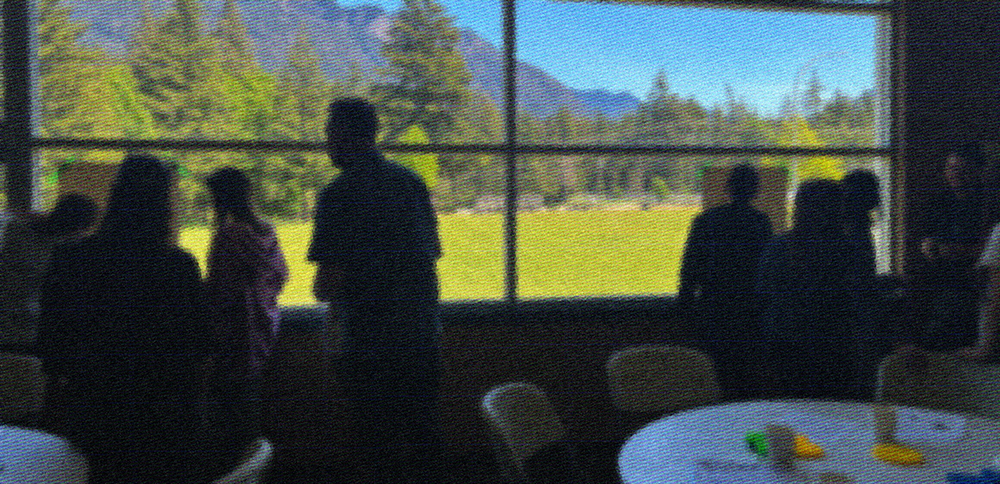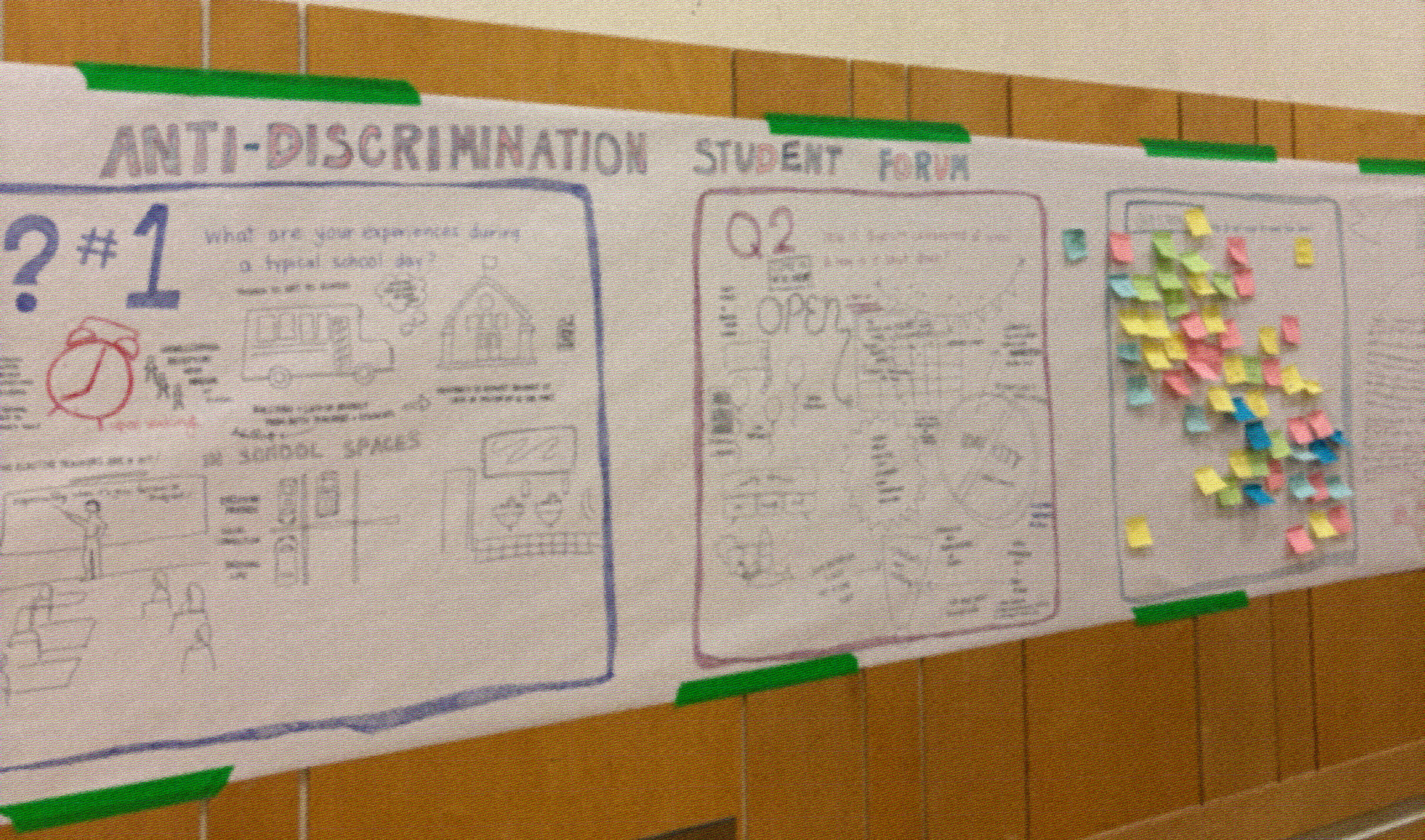Student Voices, Lasting Change:
HOW DIALOGUE SHAPED SCHOOL DISTRICT 78 ANTI-DISCRIMINATION EFFORTS
When students move from being consulted to becoming co-creators, something shifts, and real dialogue becomes the starting point for real change — because it’s rooted in listening.
the partner
Serving a diverse region from Harrison Hot Springs and the District of Kent up the Fraser River to Hope, Yale, and Boston Bar, School District #78 Fraser-Cascade is dedicated to fostering a love of learning, personal integrity, self-confidence, and respect for the dignity of others — helping every student reach their potential. The District includes 14 Nations, from Sts’ailes and Cheam First Nation to Boston Bar First Nation and Boothroyd Indian Band. To best support its diverse student population, the District prioritizes inclusive education and working towards Truth and Reconciliation. These efforts include developing the first B.C.-designed anti-oppression curriculum for early education and hosting an annual powwow every fall.
the challenge
For the 2024/2025 school year, the Board identified two large but critical projects: updating their Strategic Plan and redesigning their Bylaws and Policies. This included reviewing and reshaping their Multicultural and Discrimination policies.
Student engagement was an essential part of this process — and it mattered that students felt empowered to share their honest experiences and feedback. Recognizing the inherent power imbalances between students and District staff, the District engaged community collaborators, including Thrive & Connect Community Consulting, to design and facilitate this work.
goals
Centre student stories to surface lived experiences of discrimination and belonging
Identify concrete opportunities for policy, practice, and cultural change within the District
Engage and amplify voices that are often unheard or underrepresented
collaborators
School District #78 Fraser-Cascade Indigenous Education Department
School District #78 Fraser-Cascade Anti-Discrimination Committee

the groundwork for community building
According to the 2023 McCreary BC Adolescent Health Survey for Fraser-East, 54% of students identify as Indigenous, Black, and/or a Person of Colour. Of Indigenous youth, 48% reported that at least one family member had attended a Residential School; another 37% of students didn’t know their personal family history. Reports of discrimination based on race, ethnicity, or skin colour, gender or sex, and sexual orientation have risen since 2018.
The Fraser-Cascade School District serves much of Fraser-East’s rural student population, who face unique challenges that come with rural living. Of rural respondents, 15% of students attempted suicide in the past 12 months (compared to 5% of urban students), and 30% seriously considered it (compared to 7% of urban students). These statistics highlight why centering student voice, especially from those most affected by systemic inequities, is not just important — it is urgent.
our process
Our second engagement took place during the Spring 2025 Professional Development Day, creating space for staff to hear directly from students, explore alignment or divergence with their own experiences, and begin co-creating possible pathways forward. This reaffirmed a core belief at the heart of this work: systemic change becomes possible when we engage across roles and perspectives — together.
Before the end of the school year, we reconvened with the same students for a final gathering. This marked a shift: from listening to validating, from surfacing to shaping. We returned to students with what we had heard, offering a synthesis of themes and proposed actions, and asked: Did we hear you right? Are we representing your voice accurately?
Grounded in transparency, consent, and co-creation, this final forum affirmed that when students are invited back into the process to help interpret and guide action, trust grows. Their feedback, additions, and corrections deepened our understanding, validated the report’s findings, and sharpened the direction for what comes next. A final report was provided to the School District, detailing these insights and proposed pathways forward.
Working in collaboration with Fraser Health, we designed and co-facilitated two student forums and one teacher workshop to gather insights and visions for the future. The facilitation centered on creating spaces where students could reflect, share, and explore possibilities for change — rooted in lived experience, curiosity, and care.
Intentionality guided every step: from the questions we asked to how we held the room. We approached the work with the belief that meaningful insights come not through extraction, but through shared reflection and trust, allowing students to show up fully and imagine what could be possible.
The first student forum surfaced rich, layered reflections that formed the foundation for all future work. Shortly after, we conducted an initial round of data analysis, reviewing discussion summaries, notes, and observations to identify key themes, clear wins, tensions, and emerging insights.

“Co-facilitating the Student Anti-Discrimination Forum with Megan was an incredibly rewarding experience. They have a natural ability to create a space where students feel safe, heard, and empowered to share their stories. Their facilitation style is thoughtful, engaging, and deeply empathetic—ensuring that every participant feels valued in the conversation.”
-Erick Carreras, Fraser Health
the impact
25 students, who reported feeling unheard and dismissed for much of their school lives, were fully engaged in the process
10+ teachers and administrative staff participated
Report provided to the District, including more than a dozen proposed pathways for improvement
Three projects conceived through this process are actively seeking funding, one successful to date
Planning underway for a District Student Council in the 2026/2027 school year
Presentations to the School Board and the Hope Inclusion Project to support knowledge mobilization efforts
now they thrive
Prioritizing student safety and building relationships grounded in trust proved immensely fruitful for the Fraser-Cascade School District. By designing a process that acknowledged systemic inequities and power imbalances, students moved from simply being consulted to becoming true partners in shaping solutions. This approach surfaced richer, more honest insights and built momentum for tangible change: new projects, policy shifts, and the creation of spaces for ongoing student voice.
At its heart, this case study demonstrates that when dialogue is facilitated with care, curiosity, and an equity lens, it can do more than gather feedback — it can transform relationships, deepen trust, and spark the conditions where communities can truly thrive.




